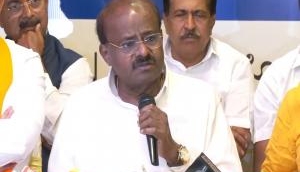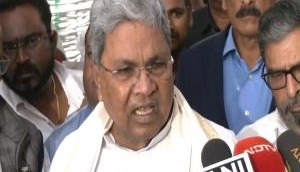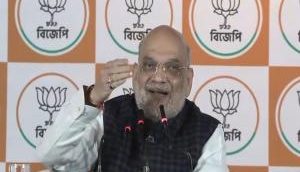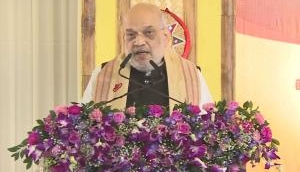
Delivering some hope on the prolonged One Rank, One Pension (OROP) issue, Defence Minister Manohar Parrikar has said that there would soon be some "good news" on the matter.
- On 17 February 2015, Parrikar had approved the proposal for implementation of OROP, which is estimated to cost Rs 8,300 crore.
- The proposal was forwarded by the Ministry of Defense to Ministry of Finance on 17 Mar 2015, and has not moved since.
What is OROP?
- One Rank, One Pension (OROP), or same pension, for the same rank, was the basis for determining the pension and benefits of Indian Armed Forces till 1973.
- The scheme implies that uniform pension be paid to the Armed Forces Personnel retiring in the same rank with the same length of service, irrespective of their date of retirement. Also, any future increments in the rates of pension are to be automatically passed on to past pensioners.
- Currently, the pension for retired personnel is based on Pay Commission's recommendations at the time when he or she retired. Therefore, a Major General who retired in 1996 draws a lower pension than a Lieutenant Colonel who retired after 1996.
- Close to 22 lakh ex-servicemen and over six lakh war widows In India stand to be immediate beneficiaries of the scheme.
Why was the scheme trashed?
- In 1973, the Indira Gandhi's Congress government, following the Third Central Pay Commission (3 CPC), in an "ex-parte" decision, terminated OROP. The termination upset the Armed Forces and has since become a cause for protests by Armed Forces Veterans.
What followed?
- In 2011, Koshyari Committee, an all party ten member Parliamentary Panel, examined OROP and re-recommended its early implementation.
- The long-standing demand for OROP to be reinstated, was accepted by the UPA government in 2014. The government decided to implement it in the July 2014 budget, and set aside Rs 500 crore for the scheme. However, due to some technical calculation and interpretations, the scheme was not implemented.
Pending promises on the scheme
- PM Narendra Modi voiced his concerns over the implementation of OROP in his election speeches last year. He promised that if BJP comes to power, as it did, then OROP will implemented.
- Addressing ex-servicemen over the issue, PM Modi said that it was not possible to implement the scheme on an immediate basis as there were several issues concerning it.
- The scheme however, has not been implemented till now. Ex-Servicemen disappointed with BJP's words and promises, on 15 June, commenced nationwide protests, and hunger strikes.
The formula
- After coming to power, Manohar Parrikar-led Defense Ministry spoke of 80 per cent satisfaction levels for pensioners and pondered over the formula to fix the OROP pension.
- This was the debate over the earlier formula of OROP because of the contention over time served, year of retirement and last salary drawn. There are many instances where even soldiers who retire in the same rank do not draw the same salary. This is because one Brigadier may have taken longer to get promoted, thus getting less pay as Brigadier - or one could reach retirement age earlier than the other.
- By creating standardised slabs for each rank with a certain length of service, the Ministry has solved the problem of variations in rank and last pay drawn. This proposal was sent to the Finance Ministry for approval.
What is holding the Government back?
- The Defence Minister confirmed that Rs 8400 crore is confirmed as the outgo for implementing OROP.
- The expenditure is bound to increase every year and with every successive pay commission.
- Moreover, as military personnel retire at an earlier age compared to their civilian counterparts, military pension is paid for a longer period of time.
- This fear of an increasingly unsustainable defence pensions bill - which is already at 54,500 crore this year without OROP - is perhaps the cause of the delay in implementation of the scheme.
-The government is also worried that implementing OROP will lead to similar demands from civilian pensioners.








![BJP's Kapil Mishra recreates Shankar Mahadevan’s ‘Breathless’ song to highlight Delhi pollution [WATCH] BJP's Kapil Mishra recreates Shankar Mahadevan’s ‘Breathless’ song to highlight Delhi pollution [WATCH]](https://images.catchnews.com/upload/2022/11/03/kapil-mishra_240884_300x172.png)

![Anupam Kher shares pictures of his toned body on 67th birthday [MUST SEE] Anupam Kher shares pictures of his toned body on 67th birthday [MUST SEE]](https://images.catchnews.com/upload/2022/03/07/Anupam_kher_231145_300x172.jpg)






